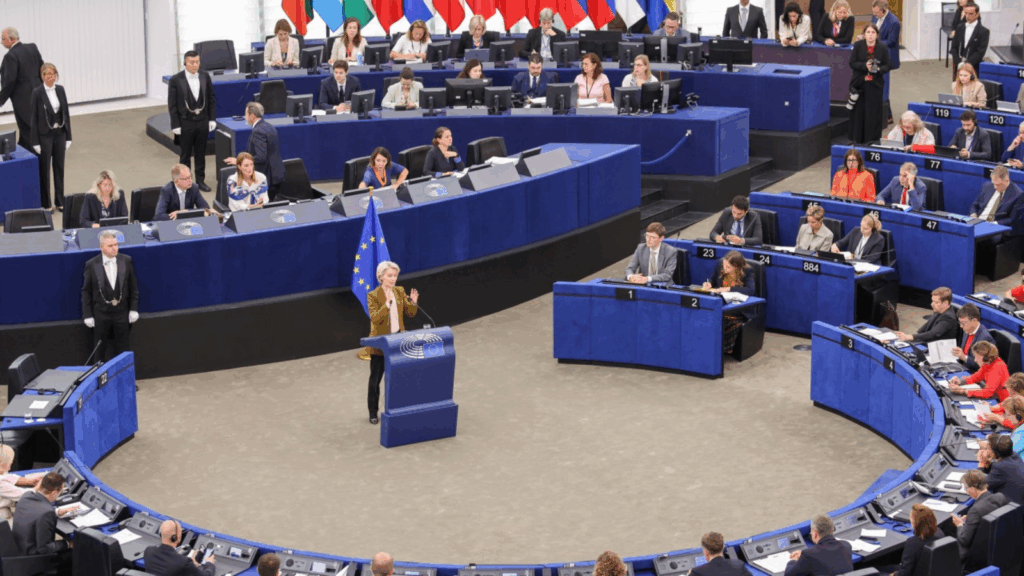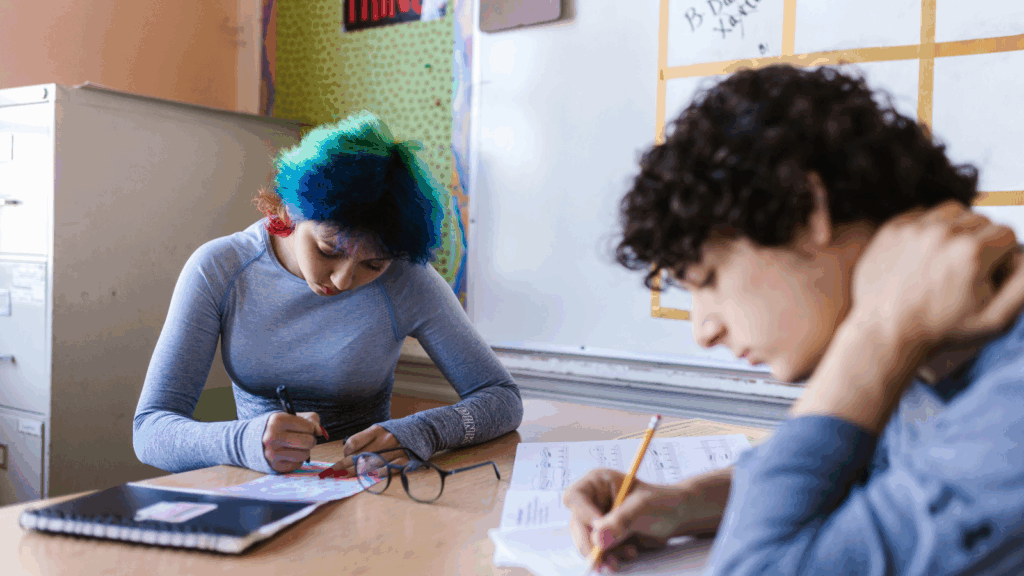European Pillar of Social Rights Targets
Following the proclamation of the European Pillar of Social Rights (EPSR) in 2017 and its Action Plan (2021), the Commission proposed to set the target of reducing the number of people at risk of poverty or social exclusion (AROPE) by 15 million, including at least 5 million children, by 2030.[1] Following the reduction of the number of children AROPE between 2015 and 2019 by 3.1 million, this number did indeed seem like a reasonable and achievable target. However, in 2022, 20 million or 1 in 4 children in the EU were AROPE, a gradual increase observed every year since 2019.[2] Too many families in Europe are at risk of poverty and social exclusion, a situation that can lead to challenging family situations.
Regional and Demographic Disparities
A closer look at the data reveals large regional and demographic disparities between Member States and households in the EU. At the national level, the highest percentage of children AROPE were recorded in Romania, Bulgaria, Spain, Italy, Greece, and France, all above the EU average.[3] At the household level, there are much higher risks of poverty among children growing up in single-parent families, children with disabilities, or children with Roma or migration backgrounds.[4] Moreover, in recent years, the combined effects of the Covid-19 pandemic and the energy and food inflation-induced cost-of-living crisis have reduced the purchasing power for many families, hitting particularly hard those that were already struggling with material deprivation.
Breaking the Cycle through the European Child Guarantee
Child poverty does not exist in a vacuum. Rather, as a result of structural issues, it is often transmitted from generation to generation, creating a cycle of poverty that is extremely hard to break for families without targeted policies that tackle the underlying systemic causes. Therefore, Eurodiaconia believes that the European Child Guarantee presents a unique opportunity to make a tangible difference in tackling child poverty and social exclusion. Adopted in 2021, the recommendation aims to ensure that every child in Europe at risk of poverty or social exclusion has access to the following key services: 1) free early childhood education and care, 2) free education (including school-based activities), 3) free healthcare, 4) healthy nutrition, 5) adequate housing.
Good Practices from our Membership
Poverty and social exclusion can contribute to and exacerbate challenging family situations. Therefore, the services and projects run by our membership collectively contribute to addressing child poverty and supporting families by empowering individuals, fostering community resilience, and promoting social and economic integration.
Kirkens Koshaer, one of Eurodiaconia’s Danish members, believes that it is very important to support families from the very beginning. Therefore, their project “Familiegrupper” (Family Groups) targets families in vulnerable situations with children between 0 and 3 years.[5] Their family groups offer a training program for 34 weeks, building a safe environment for families and providing them with a community of fellow parents. The employees offer parenting advice and support the families’ well-being. Even though the program mainly focuses on parenting questions, the staff experienced that through the development of a safe community, parents also opened up to seek help and support with other questions and difficulties. Through this approach, Kirkens Koshaer ensures that parents have a safe space to discuss difficult questions and their challenges, get professional support, and can thus provide a stable environment for their children.
Concerning the work with older children and teenagers, our member Diakonie München und Oberbayern is very active. They run a project that supports families struggling with mental health challenges: “Lebensräume” (“Life or LivingSpaces”)[6] is a service dedicated to families in which at least one parent has mental health problems. Their counseling center is therefore open for children and teenagers as well as their parents. On one hand, the aim is to support children and teenagers in those difficult times through counseling, to provide them with a safe space, and to empower them to build up their self-confidence despite those mentally challenging family situations. On the other hand, the work with the parents focuses both on the prevention of future mental health crises as well as on assisting in their parenting and structuring a local support network. Through their work, Diakonie München und Oberbayern aims to support the whole family and to ensure that the family can stay together, even in (mentally) challenging times.
These examples show that non-for-profit social service providers play a crucial role in supporting families and helping those in need and difficult situations. Eurodiaconia therefore calls to support children and their families, especially those living at risk of poverty and social exclusion, as well as civil society organizations working with families in vulnerable situations. Strong social protection systems for children and their families are needed to break the intergenerational cycle of poverty and pave the path for the families’ well-being, today and everyday.
Sources:
[1] The European Pillar of Social Rights Action Plan – Employment, Social Affairs & Inclusion – European Commission (europa.eu)
[2] https://ec.europa.eu/eurostat/databrowser/view/ilc_pecs01__custom_9436226/default/table. However, it is to be noted that some changes in data collection methodology have occurred in some countries during this time period, possibly factoring into the increase observed.
[3] Children at risk of poverty or social exclusion – Statistics Explained (europa.eu)
[4] Child poverty brief.pdf (unicef.org)
[5] https://kirkenskorshaer.dk/dem-hjaelper-vi/familiegrupper
[6] https://jugendhilfe-muc-obb.de/kinder-jugend-familie-top/jugend-familie/lebensraeume



